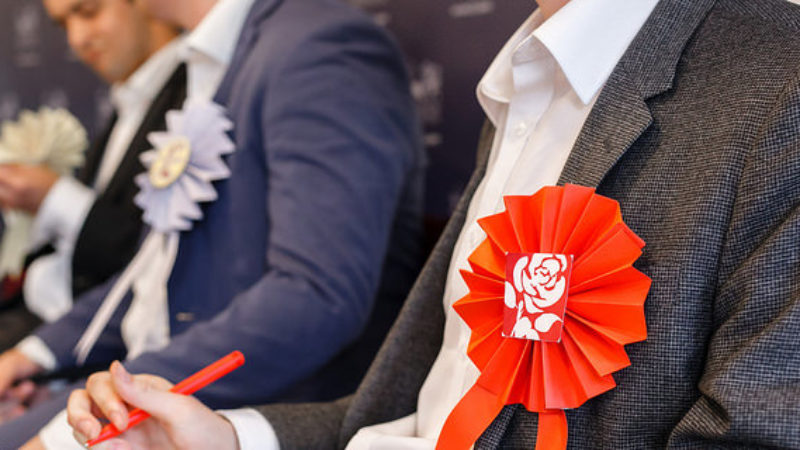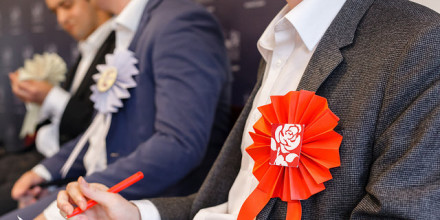

The levels of discontent in the Parliamentary Labour Party are widely recorded, evidenced by accounts of PLP meetings and the votes cast recently regarding the PLP’s backbench committees and its representatives on the NEC.
Having previously been a councillor for 12 years I went back to Labour’s Local Government Conference last weekend to take the temperature of the next layer down of the party’s elected representatives.
I found a mood that was somewhere on a spectrum between disdain for the leadership and open mutiny.
Labour local government was in the vanguard of the previous Hard Left insurgency in the 1980s, with councils like Ken Livingstone and John McDonnell’s GLC, Lambeth, Hackney and Liverpool earning the tabloid label “Loony Left”.
This time around, councillors are the grownups in the room, taking on the mantle worn by the unions in the 1980s as the bit of the party desperately trying to do the right thing by Labour voters while everyone else indulges in ideological fantasies.
Only three council leaders in the entire UK are viewed as Corbynite.
Labour councillors just held a vote between two moderate candidates and elected Newcastle’s Nick Forbes, an outspoken moderniser, as leader of the Local Government Association Labour Group.
Councillors now are less “Loony Left” this time as “Mad As Hell” with the antics of the national leadership.
They simply do not understand why they know how to be responsible, show competence and win elections at a local level, but they are being “led” by people exhibiting none of these qualities.
Points I heard repeatedly and publicly aired, not by random backbenchers but by council leaders and deputy leaders included:
- Resentment at taking lectures about “fighting austerity” from blowhard Westminster politicians for whom this is just a slogan when councillors have had five years in the frontline trying to safeguard vital services in the face of cuts of up to 50%.
2. Shadow Communities and Local Government Secretary John Trickett’s speech to the conference went down like a lead balloon. It was described to me as “the poorest shadow cabinet speech ever, lacking in both content and delivery” while another leader said “just because he was a council leader 25 years ago doesn’t mean he knows anything about the situation we face now”.
3. There was particular anger that Trickett proposed that Labour would vote with Tory rebels to overturn the local government financial settlement. This sounds radical but the rebels are MPs from shire counties and if they win it would mean the Government would reallocate cuts away from the mainly Tory shires so they fell more heavily on mainly Labour urban areas.
4. Lack of recognition that councillors are the backbone of campaigning in most areas, whilst the much trumpeted armies of new Momentum activists have turned out just to be online clicktivists or people who like sounding off in meetings rather than delivering leaflets or canvassing.
5. The Labour Party centrally levies a percentage of councillors’ allowances totalling about £2 million per year. This makes the Association of Labour Councillors Labour’s largest funder but because it is accounted for as donations from each individual, councillors have none of the say in the direction of the party that the big trade unions do. Most of the cash is believed to disappear into the party’s general budgets rather than being ploughed back into supporting councillors and their elections as was promised.
6. Councillors feel dramatically underrepresented in Labour’s policy and organisational decision-making structures for the amount of campaigning work they do and the funding they provide both locally and nationally (councillors are often the largest donors to local parties too). They only have two NEC reps out of 33, and 8 NPF reps (fewer than Young Labour, which gets 11). There will probably be rule changes promoted by councillors themselves to try to redress this.
7. May’s council elections have been stripped of central cash and organising staff in order to prioritise London, Scotland and Wales. Councillors don’t feel they have a voice in planning the May elections or that there is any usable national campaign theme that they can adopt locally.
8. There was particular concern that councils with a defence or maritime tradition like Plymouth or Southampton will lose seats to the Tories because of the move to change Labour policy on Trident and dredging up the Falklands as an issue. Generally there was concern about losing votes through a focus on ephemeral political hobby foreign policy horses rather than core issues around jobs, housing and, as several councillors put it “parking and dog shit”. One councillor said “how am I supposed to canvass a road called Goose Green Close and tell them we want to negotiate the sovereignty of the Falklands with Argentina”.
9. Concerns that Momentum will seek to put pressure on councils to set illegal budgets and then target councillors for deselection just for carrying out their fiduciary duties.
Maybe a party can survive conflict with its MPs and could over time replace 200 of them with ideological allies of its leader.
I don’t believe it is sustainable for a party to be in conflict – or rather, in a completely different political paradigm – with its 7,000 councillors, who are the backbone of its local campaigning and actually in power, showing voters a model of Labour in government, in much of the country. There simply are not 7,000 new model leftwingers available to replace them.
At some point Corbyn and co are going to have to start listening. They can listen to the Labour Party’s councillors, whose ears are to the ground in local communities, and are increasingly pessimistic about what they are hearing, now, or they can listen more painfully to angry voters later.



More from LabourList
NEC member warns of CLP ‘resentment’ over twinning and cut-off IT access
‘A black hole, CQC woes, prison crisis: Tories get taste of their own medicine’
Labour NEC elections: ‘Councillors must have a voice and be listened to’